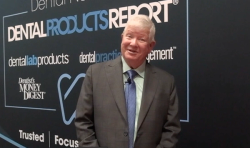- About Us
- Advertise
- Editorial
- Contact Us
- Terms and Conditions
- Privacy Policy
- Do Not Sell My Personal Information
© 2025 MJH Life Sciences™ and Dental Products Report. All rights reserved.
Glidewell Launches flexTAP Sleep Appliance
Glidewell’s newest addition to its line of sleep appliances is metal-free, accessible for patients, and effective in treating snoring and mild to moderate obstructive sleep apnea.
Glidewell has announced the launch of its newest sleep appliance, the flexTAP® mandibular advancement device (MAD). FlexTAP is designed to treat snoring as well as mild to moderate obstructive sleep apnea, defending against upper airway collapse. FlexTAP is a small, thin device with 14 mm total range of mandibular advancement. There is no metal in the device and it also requires no bite registration. It is meant to encourage nasal breathing and manage tooth movement, according to a press release from Glidewell.
“We’re pleased to introduce the flexTAP appliance,” Glidewell preventive care general manager, Peter Tran says in the press release. “We have been serving dentists with sleep appliances since 1996, and we strive to make sleep therapy more accessible to dentists and their patients. As a completely new offering, the flexTAP provides several new features aimed at helping clinicians enhance their success in sleep medicine.”
These new features include Glidewell’s Vertex Technology®, which enables more airway and tongue space with less protrusion or strain on the jaw, due to the design of the post angulation. FlexTAP also includes a mouth shield to train nasal breathing and reduce drying and saliva that often accompanies oral breathing. Finally, it comes with the AM Aligner® device to record the patient’s natural pretreatment bite. Each morning, after treatment, the patient will wear the AM Aligner to exercise the jaw into normal occlusion.
Not only does flexTAP have a 3-year warranty, but it is also eligible for Medicare reimbursement under code E0486.
“It is my new go-to,” private practitioner and flexTAP adopter Dr Jill Ombrello says in the press release. “Patients love additional tongue space and that it is metal-free. I love that we can ask patients to adjust at home, without an in-person visit, to alleviate their symptoms.”



